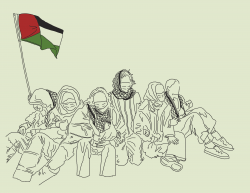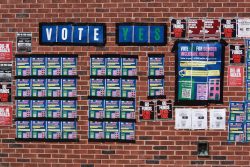In the past months, the newly formed Emergency Response Team has consistently presented preparedness plans long on mirage, but short on specific improvements to student safety. The announcement last week of changes to the University’s Caller ID policy, however, provides a welcome change to the ERT’s mostly illusory accomplishments.
On April 22, the University plans to begin transmitting the specific phone numbers of on-campus callers to Caller ID systems. Currently, those systems identify on-campus calls as the number of the University’s main switchboard, 202-687-0100.
The benefits of this policy are clear. According to former GUSA President Kaydee Bridges, a number of students have been harassed by anonymous callers, including one known as “The Uncle,” who impersonates students’ family members. Caller ID services make it difficult for harassing callers like “The Uncle” to shield their identities. In addition, there is an undeniable convenience factor, particularly for students with phones that can automatically redial to numbers they receive.
Most importantly, on-campus numbers will now be transmitted to 911 operators. While operators will not be able to pinpoint the location of students in distress directly, they can contact the Department of Public Safety to determine specific locations. Will Anderson, a support services manager for University Information Services, says that once a database is constructed to match phone numbers with their specific locations, 911 operators will know those locations directly.
Privacy concerns are ill-founded. Anderson said that students will be able to block their information by pressing a code before making calls. Students will also have the option to permanently block caller ID information, provided they sign a waiver absolving the University of responsibility in a 911 situation. Anderson also said that in the five days since the policy was announced, UIS has heard no negative feedback from students or faculty.
Groups from across the University, including UIS, Office of Communications, University Counsel and GUSA, worked together for six months on this issue. Once again, this success proves that GUSA leadership can be quite effective given uncontroversial goals and wide consensus. Students and administration should be congratulated for working together to improve campus safety in a way more effective than any evacuation plan or dormitory lockdown.




